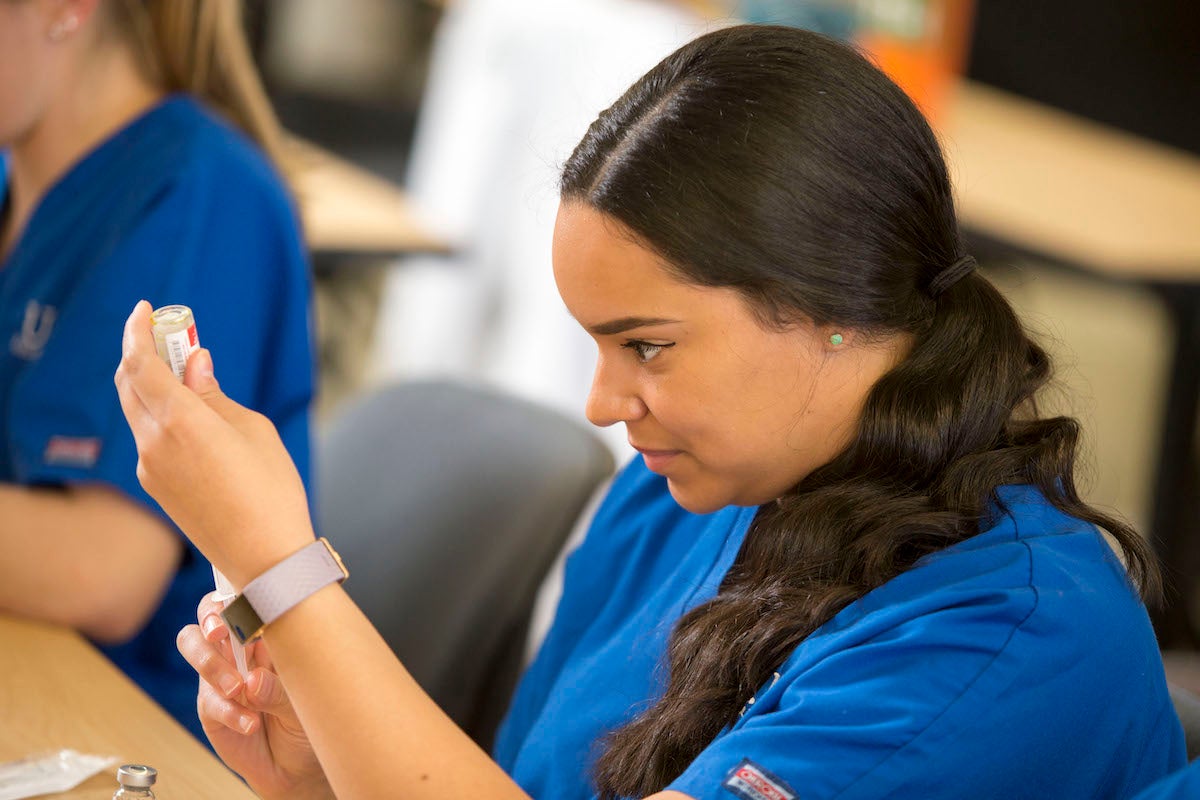Students attain certification as medication technicians in state facilities
Certified Nursing Assistants in Rhode Island Department of Health-approved long-term care facilities will soon be able to administer medications to patients, helping relieve the burden on nurses in often short-staffed facilities.
The initiative is thanks to a partnership involving the University of Rhode Island College of Pharmacy Office of Continuing Professional Development, the state Department of Health and the URI Office of Strategic Initiatives.
The State Approved Training Program in Drug Administration educates CNAs to become medication technicians, certified to deliver drugs in department of health facilities, including long-term care facilities and adult day care centers. Taught by registered pharmacists and nurses, led by URI pharmacy Senior Lecturer Patrick Kelly, the 15-week course teaches CNAs all they need to know to safely and effectively deliver medications. Course topics include medication dosage forms, pain medication therapy, legal constraints, neuropsychopathic medications and more.
Classes will be held virtually each Wednesday evening, from 6 to 9 p.m., beginning Sept. 8. Students must hold a high school diploma and be employed as a licensed CNA in a state nursing home, adult daycare, group home or assisted living facility. Students are required to attend every session to attain the 45 hours required for licensing. To apply, visit the course webpage here.
Tuition for the course and licensing fees are waived for CNAs, thanks to a grant from the state Department of Labor and Training, part of the Transforming Health in Rhode Island Partnership. The Real Jobs RI-affiliated program aims to provide the training and education healthcare professionals need to transform and modernize the delivery of health care in Rhode Island.
“This course will upskill them from licensed CNAs to Medication Technicians, giving them an additional certification, and providing increased stability and flexibility to long-term care facilities,” said Mary-Jane Kanaczet, director of URI’s Office of Continuing Professional Development. “The demands on healthcare workers are as high as they have ever been, and burnout is increasing. This program will provide CNAs an important new skill to support the health care team and ultimately provide better care for patients.”
The Transforming Health partnership — which includes the URI Academic Health Collaborative, Real Jobs RI, and community-based health care organizations — aims to enhance the training of health care professionals as health system transformation efforts evolve in the state. The overall goal is to initiate change on all levels of health care service, from the cellular to the societal level, to influence positive health outcomes in Rhode Island communities.
“There is an increasing emphasis on having an appropriately trained workforce to impact health at the myriad points at which health outcomes can be influenced,” Kanaczet said. “As we work to meet the needs of our community during the COVID pandemic, it highlights the ongoing need to bring new skills and increase the capacity of the workforce.”

